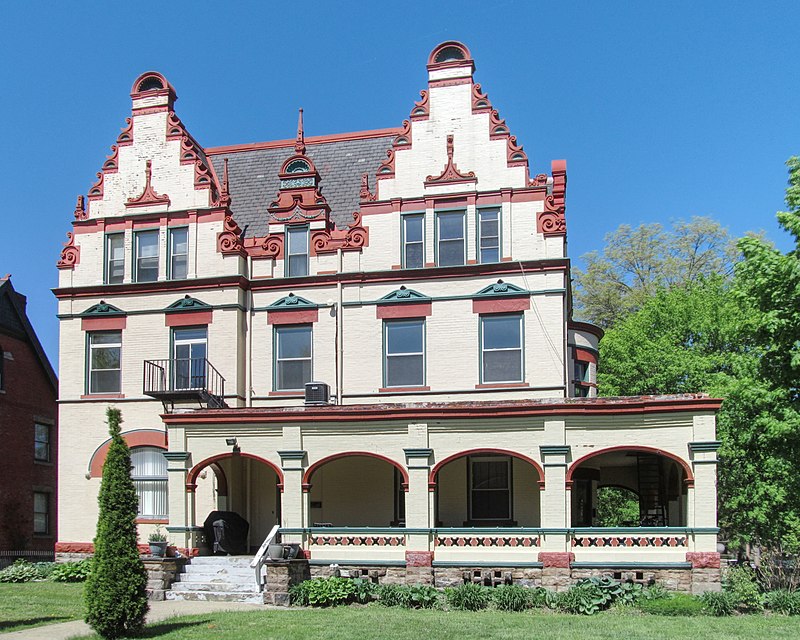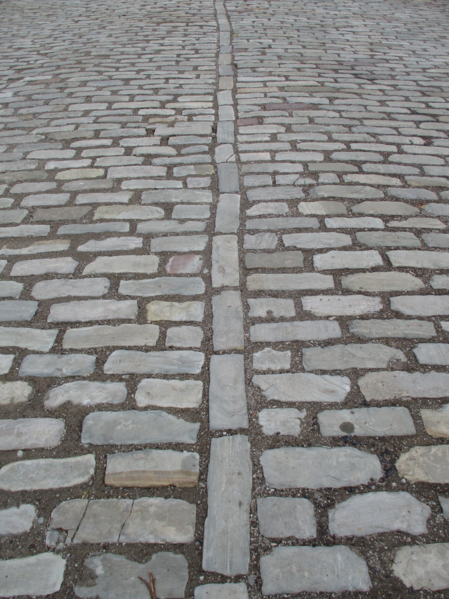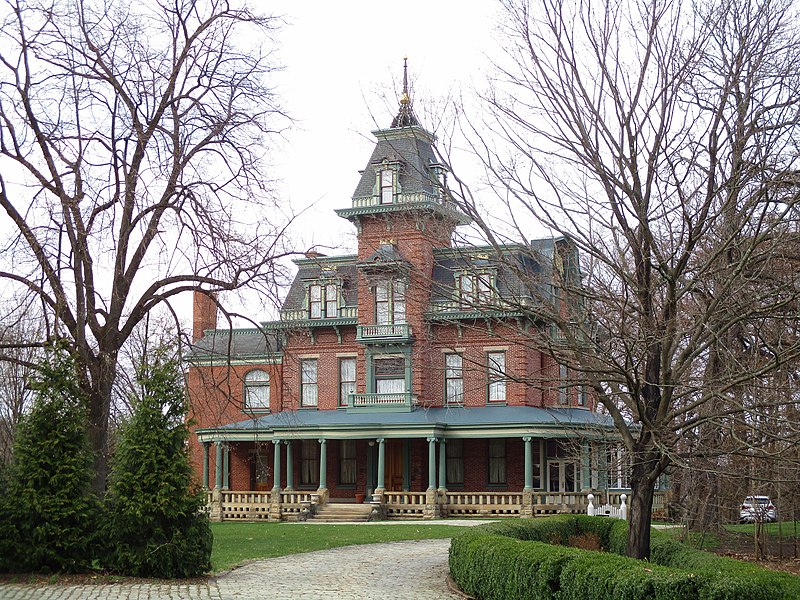
In 2002, the Water and Sewer Authority installed a microfiltration system to purify the water while keeping the Highland Park Reservoir open. This picture from 2001 shows the previous water-purification technology.
Why should the beautiful die?


Flemish Renaissance is not the most common style in Pittsburgh; this is certainly one of our most splendid examples of it. It is one of the surviving millionaires’ mansions on Highland Avenue. Father Pitt’s identification of it as the Elliott–Fownes house is based on two sources. The application for the neighborhood’s historic-district designation in the National Register of Historic Places mentions it as the home of “machine politician Robert Elliott”; a 1912 book has Henry C. Fownes, founder of the Oakmont Country Club, at this address.



A surprising number of Pittsburgh streets are still paved with Belgian block, which Pittsburghers usually call “cobblestone.” (Real cobblestones are irregular round stones.) In some better neighborhoods, all the streets were paved with Belgian block. In other neighborhoods, more-or-less flat sections were paved with brick, which is much cheaper but very slippery when wet, and the more expensive Belgian block was reserved for steep slopes.
This pavement is on Elgin Street in Highland Park.

Perhaps the grandest Second Empire mansion in Pittsburgh, Baywood was built in 1880 for Alexander King. The house is listed for about three million dollars, and thanks to the real-estate agents you can “experience Baywood” virtually. According to the site, the house sits on “an unprecedented 1.8 acre lot,” and readers are invited to speculate on what the word “unprecedented” means in that context.


This was built for the Second United Presbyterian Church, but the Baptists moved in in 1933 (according to the History of the Churches of the Pittsburgh Baptist Association). It is now the Union Project, an arts center and events hall.


